As the year comes to a close, reflecting back on the last 12 months is natural. For many people, 2020 was a particularly challenging year. As we at ILA look to a brighter future in 2021, we want to recognize and honor the literacy champions to whom we said goodbye this year. These teachers, researchers, and literacy leaders dedicated their lives to the advancement of the field of literacy, and we are grateful for their service and commitment to transforming lives through literacy.
 Carol McDonald Connor, chancellor's professor of education at the University of California Irvine School of Education, whose life’s work centered on studying language and literacy development
Carol McDonald Connor, chancellor's professor of education at the University of California Irvine School of Education, whose life’s work centered on studying language and literacy development
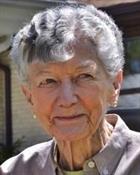 Mary Dolores Durkin, professor emerita of Education in the Department of Elementary and Early Childhood Education of the University of Illinois, Champaign-Urbana, and a recipient of ILA’s William S. Gray Citation of Merit Award, which honors ILA members who have made outstanding contributions to multiple facets of literacy development
Mary Dolores Durkin, professor emerita of Education in the Department of Elementary and Early Childhood Education of the University of Illinois, Champaign-Urbana, and a recipient of ILA’s William S. Gray Citation of Merit Award, which honors ILA members who have made outstanding contributions to multiple facets of literacy development
 William L. Edwards, professor of Teacher Education at Missouri Southern State University, and a longtime member of ILA who traveled to Pakistan, Bangladesh, Mauritius, and Malawi in his efforts to extend the mission of the International Literacy Association
William L. Edwards, professor of Teacher Education at Missouri Southern State University, and a longtime member of ILA who traveled to Pakistan, Bangladesh, Mauritius, and Malawi in his efforts to extend the mission of the International Literacy Association
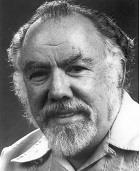 Kenneth S. Goodman, professor emeritus at the University of Arizona and a past president of the International Reading Association (now International Literacy Association), who has been referred to as “the founding father of the whole language approach to reading”
Kenneth S. Goodman, professor emeritus at the University of Arizona and a past president of the International Reading Association (now International Literacy Association), who has been referred to as “the founding father of the whole language approach to reading”
 Roselmina “Lee” Indrisano, professor emerita at Boston University’s Wheelock College of Education & Human Development and a past president of the International Reading Association, whose work around issues related to early literacy development and enhancement of struggling readers and their families was widely recognized
Roselmina “Lee” Indrisano, professor emerita at Boston University’s Wheelock College of Education & Human Development and a past president of the International Reading Association, whose work around issues related to early literacy development and enhancement of struggling readers and their families was widely recognized
 Walter H. MacGinitie, a noted educator recognized for his groundbreaking research in reading comprehension, who not only received the Reading Teachers’ Award for contributions to the field of reading from the New York State Reading Association but also served as a president of the International Reading Association.
Walter H. MacGinitie, a noted educator recognized for his groundbreaking research in reading comprehension, who not only received the Reading Teachers’ Award for contributions to the field of reading from the New York State Reading Association but also served as a president of the International Reading Association.

Judy Redman, educator, administrator, and matriarch of the Palmetto State Literacy Association, who has been honored with the creation of the Judy Redman Lifetime Achievement Award, which is presented for outstanding literacy service
 S. Jay Samuels, whose may accomplishments and contributions to the field of literacy include coauthoring alongside Alan E. Farstrup the International Reading Association’s What Research Has to Say About… series of book
S. Jay Samuels, whose may accomplishments and contributions to the field of literacy include coauthoring alongside Alan E. Farstrup the International Reading Association’s What Research Has to Say About… series of book
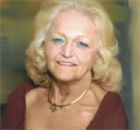 Bonnie Schmeltz, reading teacher, principal, and former president of State of Maryland Literacy Association (SoMLA), and a dedicated advocate for literacy instruction who ensured all children had access to books
Bonnie Schmeltz, reading teacher, principal, and former president of State of Maryland Literacy Association (SoMLA), and a dedicated advocate for literacy instruction who ensured all children had access to books
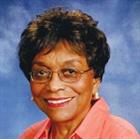 Dorothy S. Strickland, state of New Jersey professor of reading, the Samuel DeWitt Proctor professor of education, emerita, at Rutgers University, a past president of the International Reading Association, and a renowned advocate of equitable literacy instruction and of improving the quality of teacher education programs and professional development
Dorothy S. Strickland, state of New Jersey professor of reading, the Samuel DeWitt Proctor professor of education, emerita, at Rutgers University, a past president of the International Reading Association, and a renowned advocate of equitable literacy instruction and of improving the quality of teacher education programs and professional development
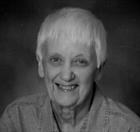
Judith Thelen, professor, literacy advocate, and a past president of the International Reading Association, whose work in reading received national and international recognition
 Gordon Wells, educator emeritus at University of California Santa Cruz, whose work focused on sociocultural theories of learning
Gordon Wells, educator emeritus at University of California Santa Cruz, whose work focused on sociocultural theories of learning
We know this is far from a comprehensive list of the great many literacy leaders who have passed away this year. Our hearts go out to the friends, families, and communities affected by their passing. The world is a better place for their efforts, and their example serves as an inspiration to us in our own work.